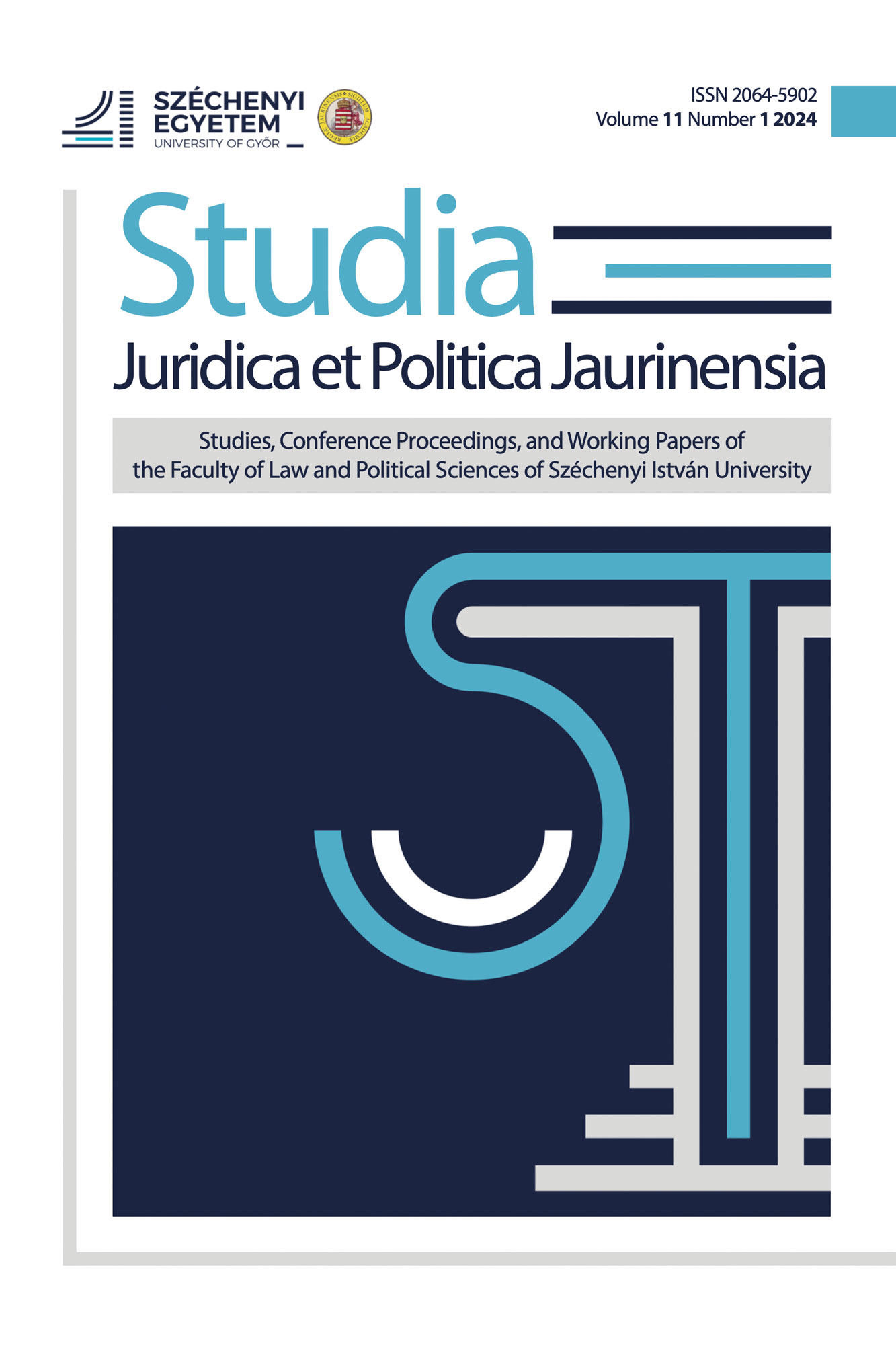Smart Contracts: A comprehensive analysis of vulnerabilities and European measures
Author: Hibatallah, Loukil
Abstract: Smart Contracts form a predominant tool for today's operations, and it is existing in practically all fields like health, banking, investments etc. It is an alternative that matches the rapidity, and the easiness required by the new era. But legal adjustments are needed to preserve the rights and confront the challenges that come with it.
Keywords: Smart contracts, blockchain, European Union, regulations
Cite as: Hibatallah, L. (2024). Smart Contracts: A comprehensive analysis of vulnerabilities and European measures, Studia Juridica et Politica Jaurinensia, 11(1), 103-113. https://doi.org/10.71100/STUDIA.2024.1.9
References:
- Cannarsa, M. (2018). Interpretation of Contracts and Smart Contracts: Smart Interpretation or Interpretation of Smart Contracts? European Review of Private Law, 26(6), pp. 773-785. https://doi.org/10.54648/erpl2018054
- Catalini, C. (2018). Blockchain Technology and Cryptocurrencies: Implications for the Digital Economy, Cybersecurity, and Government. Georgetown Journal of International Affairs, 19(Fall 2018), pp. 36–42. http://www.jstor.org/stable/26567525
- Committee on Payments and Market Infrastructure. (February 2017). Distributed ledger technology in payment, clearing and settlement: An analytical framework. Bank for International Settlements. http://www.bis.org/cpmi/publ/d157.pdf
- Directive 2014/65/EU of the European Parliament and of the Council of 15 May 2014 on markets in financial instruments and amending Directive 2002/92/EC and Directive 2011/61/EU (MiFID)
- European Commission. (October 10, 2024). Shaping Europe’s digital future: A European strategy for data. https://digital-strategy.ec.europa.eu/
- Koczan, G. (January 19, 2021). Harmonisation KYC procedures: Summary of DIMCG separate session [Conference presentation]. 4th Debt Issuance Market Contact Group Meeting. https://www.ecb.europa.eu/paym/groups/pdf/dimcg/ecb.dimcg210127_item3.1b.en.pdf
- Meyer, D. (February 27, 2018). Blockchain Technology is on a Collision Course with EU Privacy Law. IAPP. https://iapp.org/news/a/blockchain-technology-is-on-a-collision-course-with-eu-privacy-law/
- Proposal for a REGULATION OF THE EUROPEAN PARLIAMENT AND OF THE COUNCIL on the prevention of the use of the financial system for the purposes of money laundering or terrorist financing (AML/CFT Regulation).
- Regulation (EU) 2016/679 of the European Parliament and of the Council of 27 April 2016 on the protection of natural persons with regard to the processing of personal data and on the free movement of such data, and repealing Directive 95/46/EC (General Data Protection Regulation).
- Regulation (EU) 2022/868 of the European Parliament and of the Council of 30 May 2022 on European data governance and amending Regulation (EU) 2018/1724 (Data Governance Act).
- Regulation (EU) 2023/1113 of the European Parliament and of the Council of 31 May 2023 on information accompanying transfers of funds and certain crypto-assets and amending Directive (EU) 2015/849 (TFR).
- Regulation (EU) 2023/1114 of the European Parliament and of the Council of 31 May 2023 on markets in crypto-assets, and amending Regulations (EU) No 1093/2010 and (EU) No 1095/2010 and Directives 2013/36/EU and (EU) 2019/1937 (MiCA).
- Regulation (EU) No 909/2014 of the European Parliament and of the Council of 23 July 2014 on improving securities settlement in the European Union and on central securities depositories and amending Directives 98/26/EC and 2014/65/EU and Regulation (EU) No 236/2012 Text with EEA relevance (CSDR).
- Regulation (EU) 2023/2854 of the European Parliament and of the Council of 13 December 2023 on harmonised rules on fair access to and use of data and amending Regulation (EU) 2017/2394 and Directive (EU) 2020/1828 (Data Act).
- Regulation (EU) 2024/1183 of the European Parliament and of the Council of 11 April 2024 amending Regulation (EU) No 910/2014 as regards establishing the European Digital Identity Framework (eIDAS2).
- Regulation (EU) No 910/2014 of the European Parliament and of the Council of 23 July 2014 on electronic identification and trust services for electronic transactions in the internal market and repealing Directive 1999/93/EC (eIDAS).
- Susskind, R. & Susskind, D. (2015). The Future of the Professions: How Technology Will Transform the Work of Human Experts. Oxford University Press. https://doi.org/10.1093/oso/9780198713395.001.0001
- Szabo, N. (1997). Formalizing and Securing Relationships on Public Networks. First Monday, 2(9). https://doi.org/10.5210/fm.v2i9.548


